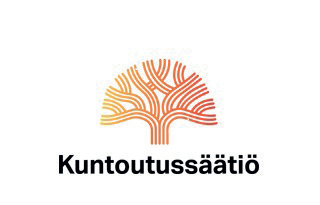Menneisyys voimavarana ja taakkana
Kokemusasiantuntijoiden päiväkirjoja työstään
Nyckelord:
kokemusasiantuntija, vertainen, työelämä, parityöskentely, kanssatutkimusAbstract
Tutkimuksessa tarkastellaan rikos- ja päihdetaustaisten henkilöiden kasvua kokemusasiantuntijoiksi kansalaisjärjestöissä, joissa he työskentelevät haavoittuvassa asemassa olevien asiakasryhmien parissa. Tutkimuksessa kysytään: Miten rikos- ja päihdetaustaiset kokemusasiantuntijat reflektoivat kokemusasiantuntijuuttaan ja suhdettaan asiakkaisiin ja ammattilaisiin? Tutkimusaineistona ovat kanssatutkijoina toimineiden kokemusasiantuntijoiden (n = 4) kirjoittamat päiväkirjat, joihin he reflektoivat työtään kokemusasiantuntijoina kuukauden ajalta. Päiväkirja-aineisto analysoitiin teemoittelemalla. Tuloksien mukaan kokemusasiantuntijat asemoivat itsensä osaksi työyhteisöjä, joissa he kokivat itsensä hyväksytyiksi ja arvostetuiksi kokemuksesta rakentuneen asiantuntijuutensa vuoksi. Suhteet asiakkaisiin rakentuivat vertaisuudesta, mikä tarjosi myös peilejä kokemusasiantuntijoiden oman kuntoutumisen reflektointiin. Työparien läheinen ja vastavuoroinen suhde on keskeinen tekijä kokemusasiantuntijaksi kasvamisessa. Työparit tarjosivat tukea, ymmärrystä ja oppimismahdollisuuksia, jotka vahvistavat kasvua kokemusasiantuntijaksi.
Abstract
The Past as a Resource and Burden. Diary Entries from Experts by Experience
In the study, we examine the growth and relationship of educated experts by experience with a history of crime working with vulnerable client groups in non-governmental organizations, concerning their clients and professionals. The aim of the research is to understand how experts by experience workers perceive themselves in various social services work tasks and the significance of their experiential expertise to themselves. The study asks how experts by experience with a history of crime and substances abuse backgrounds reflect on their expertise and their relationships with clients and professionals. The research data consist of diaries written by experts by experience co-researchers (n=4) reflecting on their work as experts by experience over the course of a month. Thematic analysis was used as the method for analysing diary data. Experts by experience positioned themselves as part of work communities where they felt accepted and valued for their expertise built on experience. Relationships with clients were built on peer support, offering mirrors for experts by experience to reflect on their own recovery. The openness of professionals humanized and improved experts by experience workers' previous perceptions of professionals. The close and reciprocal relationships with work partners are crucial factors in the growth and development of experiential expertise. Work partners provide support, understanding, and learning opportunities that strengthen growth as expert by experience. The study challenges us to consider how experts by experience can integrate their validated past experiences at client interfaces into their professional identity and work in social work roles. The research challenges us to investigate how experiential knowledge can be recognized in social and health care education as part of the development of expertise by experience and identity formation.
Keywords: expert-by-experience, peerness, working life, pair work, co-research








